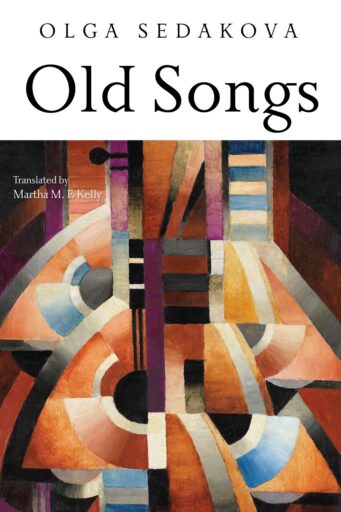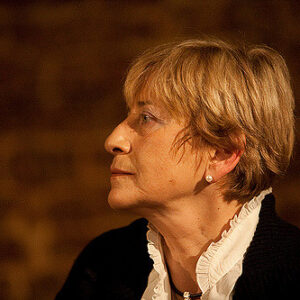Olga Sedakova is one of Russia’s most revered poets today. Born in 1949, she emerged as a writer in the late Soviet Underground, and for decades her poetry was published only in samizdat form. Several volumes were published after 1991, culminating in a 4-volume collected works in 2010. In recent decades she has primarily published translations, essays and cultural criticism, reflecting her growing importance as a public figure and a voice of conscience in the Putin era. She has spoken out publicly against the war in Ukraine since 2014. In December 2016, her close friend Svetlana Aleksievich invited Sedakova as the first guest for her “Intellektual’nyi klub” series. Over the decades Sedakova has received many prominent awards, among them Russia’s Andrei Bely Prize, the European Prize in Poetry, and Italy’s Dante Alighieri Prize.
Sedakova’s poetry draws most obviously on the modernist tradition (broadly conceived), with its embrace of complex metaphor, ellipsis, and formal experimentation. She also draws notably on classic Russian poetic form and on European traditions of metaphysical poetry, even as her poetry betrays a radical openness more in line with late modern modes. Stretching across four decades, her poems engage diverse modes, from adaptations of folk song and proverbs to odes, ekphrasis, and spiritual lyric. Sedakova’s poetry reflects a “longing for world culture” (Mandelstam, oft-quoted by the late Soviet Underground) as well as an ongoing attempt to articulate an ethic and aesthetic grounded in Russian cultural traditions.
In her poetry and social significance Sedakova recalls writers like Miłosz, but she has yet to receive similar attention in the English-speaking world. (The same cannot be said of Italy, where she has won numerous prestigious literary prizes.) Her life and work convey the force of folk wisdom, legacies of literature and learning and a luminous simplicity that hint at a future of impossible joy.


